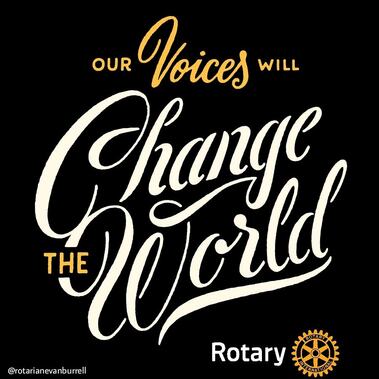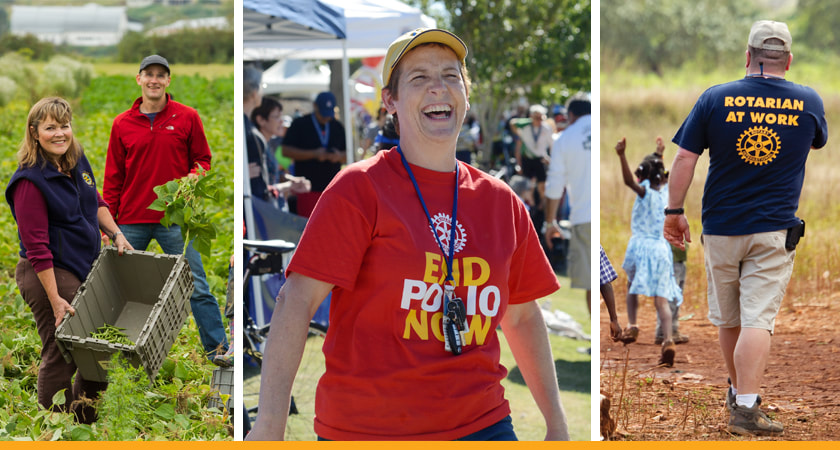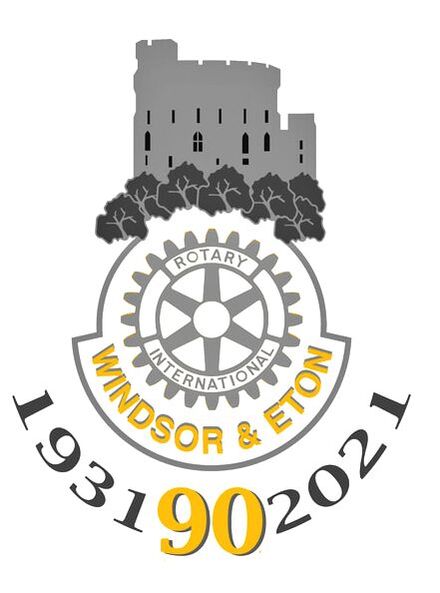 Some years ago, a new acquaintance asked me what should have been a simple question: “What is Rotary?” I opened my mouth to reply and then stopped short with the realisation that I simply did not know where to begin. The problem wasn’t that I didn’t know what Rotary was. The problem was that Rotary was — and is — too large and complex to easily define. We are a member-based organisation, a club-based organisation, and a service based organisation; we are local, regional, and international; we are community members, business people and professionals, working and retired, active in nearly every country in the world. Every one of our 1.2 million members has a unique set of goals, experiences, and priorities; every one of us has a unique understanding of Rotary. To me, Rotary is defined not by who we are, but by what we do — by the potential that Rotary gives us, and the ways we realise that potential in meaningful and lasting service. Rotary has been around for a long time: 112 years. In some ways, we’ve changed tremendously, as we’ve grown, matured, and adapted to the changing needs of our members and communities. In our fundamentals, however, we remain the same: an organisation of people with the desire — and through Rotary, the ability — to make a difference in our communities, and the world. We answer the question “What is Rotary?” with our actions, by making a difference through our service. As an organisation, we recognise how important it is that the world understand what Rotary is, and what we do. At the same time, we know that it is more important than ever to allow our clubs to define Rotary service for themselves. As Rotarians, we have more flexibility than ever to decide how we want our clubs to meet, work, and grow. We’re focused more than ever on making sure that Rotary reflects the people it serves, with more women and a more diverse membership. And we’re working hard to ensure that Rotary remains the world’s pre-eminent volunteer service organisation, by emphasising long-term planning, sustainable service, and continuity in leadership on every level. We will answer the question “What is Rotary?” with the theme Rotary: Making a Difference. However each of us chooses to serve, we do it because we know our service makes a difference in the lives of others. Whether we are building a new playground or a new school, improving medical care or sanitation, training conflict mediators or midwives, we know that the work we do will change people’s lives — in ways large and small — for the better. Whatever motivation each of us had for joining Rotary, it is the satisfaction we find in Rotary that causes us to remain, the satisfaction of knowing that week by week, year by year, we are part of Rotary: Making a Difference. Ian H.S. Riseley President, Rotary International, 2017-18
1 Comment
 With busy lives, it can be hard to find time to volunteer. However, the benefits of volunteering can be enormous. Volunteering offers vital help to people in need, worthwhile causes, and the community, but the benefits can be even greater for you, the volunteer. The right match can help you to find friends, connect with the community, learn new skills, and even advance your career. Giving to others can also help protect your mental and physical health. It can reduce stress, combat depression, keep you mentally stimulated, and provide a sense of purpose. While it’s true that the more you volunteer, the more benefits you’ll experience, volunteering doesn’t have to involve a long-term commitment or take a huge amount of time out of your busy day. Giving in even simple ways can help those in need and improve your health and happiness; and this is something we offer, and pride ourselves on, at Windsor & Eton Rotary Club. Benefit 1: Volunteering connects you to others: One of the more well-known benefits of volunteering is the impact on the community. Volunteering allows you to connect to your community and make it a better place. Even helping out with the smallest tasks can make a real difference to the lives of people, animals, and organisations in need. And volunteering is a two-way street: It can benefit you and your family as much as the cause you choose to help. Dedicating your time as a volunteer helps you make new friends, expand your network, and boost your social skills. One of the best ways to make new friends and strengthen existing relationships is to commit to a shared activity together. Volunteering is a great way to meet new people, especially if you are new to an area. Benefit 2: Volunteering is good for your mind and body: Volunteering provides many benefits to both mental and physical health, such as:
Benefit 3: Volunteering can advance your career: If you’re considering a new career, volunteering can help you get experience in your area of interest and meet people in the field. Even if you’re not planning on changing careers, volunteering gives you the opportunity to practice important skills used in the workplace, such as teamwork, communication, problem solving, project planning, task management, and organization. You might feel more comfortable stretching your wings at work once you’ve honed these skills in a volunteer position first. Benefit 4: Volunteering brings fun and fulfilment to your life: Volunteering is a fun and easy way to explore your interests and passions. Doing volunteer work you find meaningful and interesting can be a relaxing, energising escape from your day-to-day routine of work, school, or family commitments. Volunteering also provides you with renewed creativity, motivation, and vision that can carry over into your personal and professional life. Join Windsor & Eton Rotary Club and start your volunteering today... |
AuthorWrite something about yourself. No need to be fancy, just an overview. Archives
August 2020
Categories
All
|
 RSS Feed
RSS Feed
